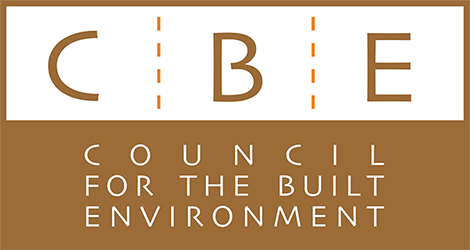Women Empowerment and Gender Equality (WEGE)
Mandate
The WEGE TCC is established in terms of the following sections of the Council for the Built Environment Act (No. 43 of 2000) (the CBE Act) as a sub-committee of the Built Environment Matters Committee (BEMC):
- promote ongoing human resources development in the built environment;
- facilitate participation by the built environment professions in integrated development in the context of national goals;
- provide advice and consultation on national policy that could impact on the built environment, human resource development in relation to the built environment professions, and the recognition of new professions
The committee would also be contributing to Government’s Priority 1: Economic transformation and job creation and Priority 2: education, skills and health. Furthermore, the work of the committee is aligned to the Department of Public Works and Infrastructure (DPWI) Transformed Built Environment outcome and the National Development Plan Implementation Plan (NDPIP) towards skilled built environment professionals in increased ownership and participation by historically disadvantaged individuals.
The WEGE TCC’s focus is to ensure an increase in women’s participation in the Built Environment in economy of the country, and fair treatment in their areas of work. This TCC will consider the gaps in the current policy on women economic empowerment and in Government Programmes meant to address them in order to make proposals for improvement and implementation. The working committee shall also look into the resuscitation of the DPWI Gender (Women Empowerment) Council. The committee could be autonomous or merge with the first committee since public procurement is used as a lever for the empowerment of designated groups.
Goals and Objectives:
The WEGE TCC will focus on the issues cited below as they affect women in the built environment.
- Monitor progress of women in the built environment in attaining economic empowerment and their participation in the economy through assessing gaps in current policies on economic empowerment and gender equality in relation to women in the built environment
- Monitor progress on Social Transformation and Social Justice for women in the built environment
- Monitor the throughput progress of women in the built environment through the CBE skills pipeline
- Verify the study findings/claims that women comprise the majority of small business owners in South Africa but make up a minority of workers in the formal sector with specific focus on the Built Environment. This report claims that in construction, there are eight times as many men in the industry than there are women. This is also supported by a gender analysis of government’s incentives schemes administered by the Department of Trade and Industry (DTI)
- Monitor the implementation of Gender Responsive Planning and Budgeting Framework approved by Cabinet on the 27 March 2019 (enforcement of the 30% of procurement to be dedicated to this sector in relation to women in the built environment)
- Revive the DPWI Women Empowerment Council (and address lessons learned)
- Review the National Policy Framework for Women’s Empowerment and Gender Equality
- Advocate for resuscitation and the institutionalization of the Women Empowerment and Gender Equality (WEGE) Bill
- Implement gender budgeting, monitoring, evaluation and auditing in key infrastructure Departments and SOEs
- (Advocate) Ensure that Annual Performance Plans of infrastructure departments and other entities’ targets are gender-sensitive and responsive
- Conduct a scientific research study on the Status Quo of Women in the Built Environment
- Assess the feasibility of resuscitating the DPWI Gender (Women Empowerment) Council
| Title | Size | Download |
|---|---|---|
| Quarter 3 2022-23 Report WEGE TCC | 333.98 KB | DownloadPreview |
| Quarter 2 2022-23 Report WEGE TCC | 209.61 KB | DownloadPreview |
| Quarter 1 2022-23 Report WEGE TCC | 226.36 KB | DownloadPreview |
